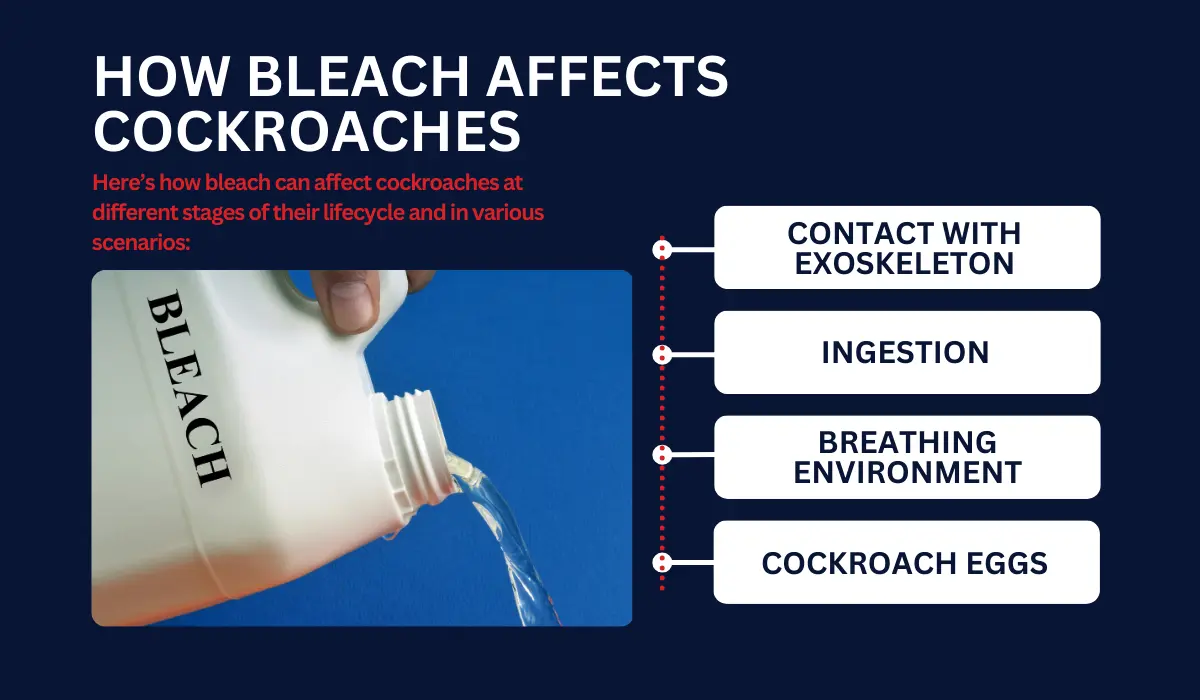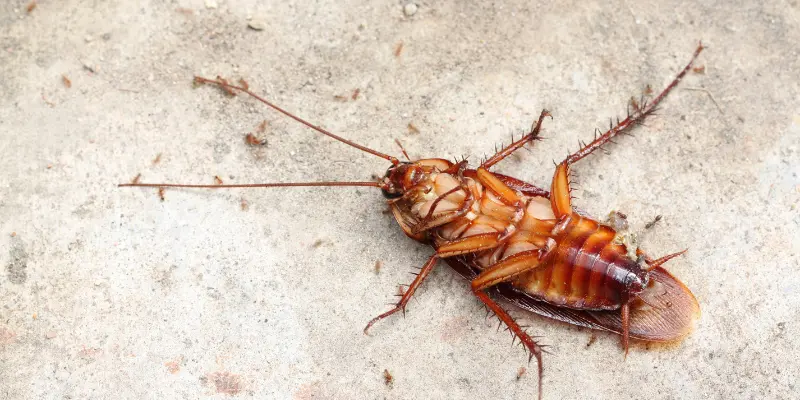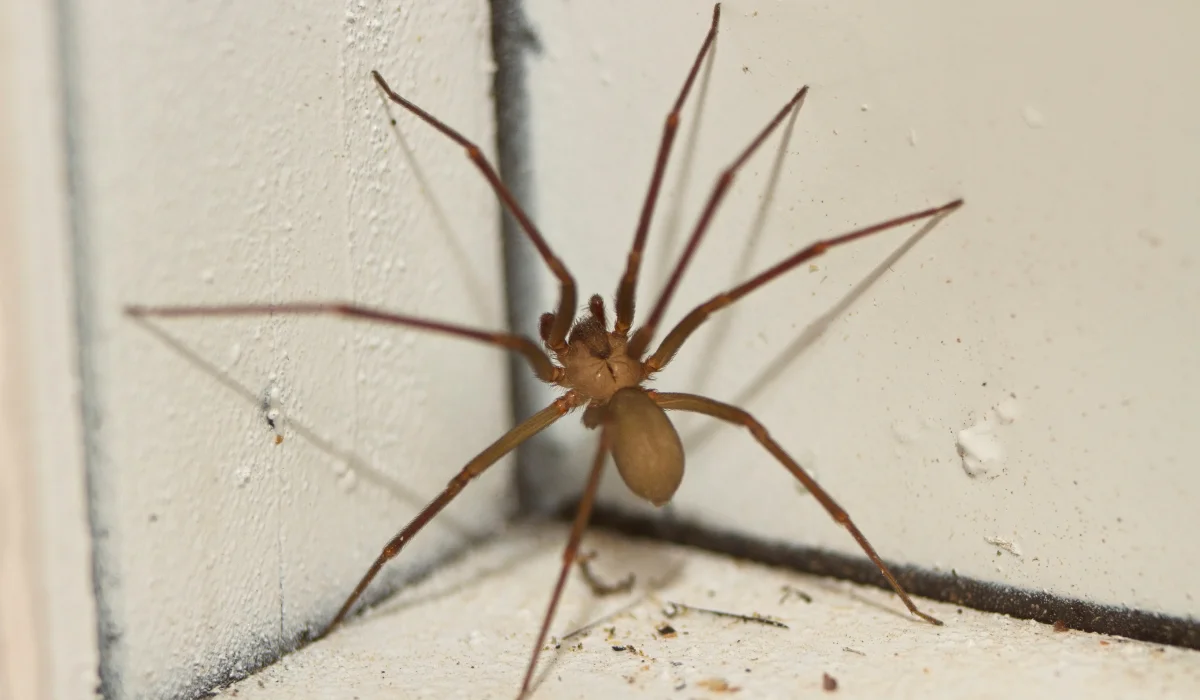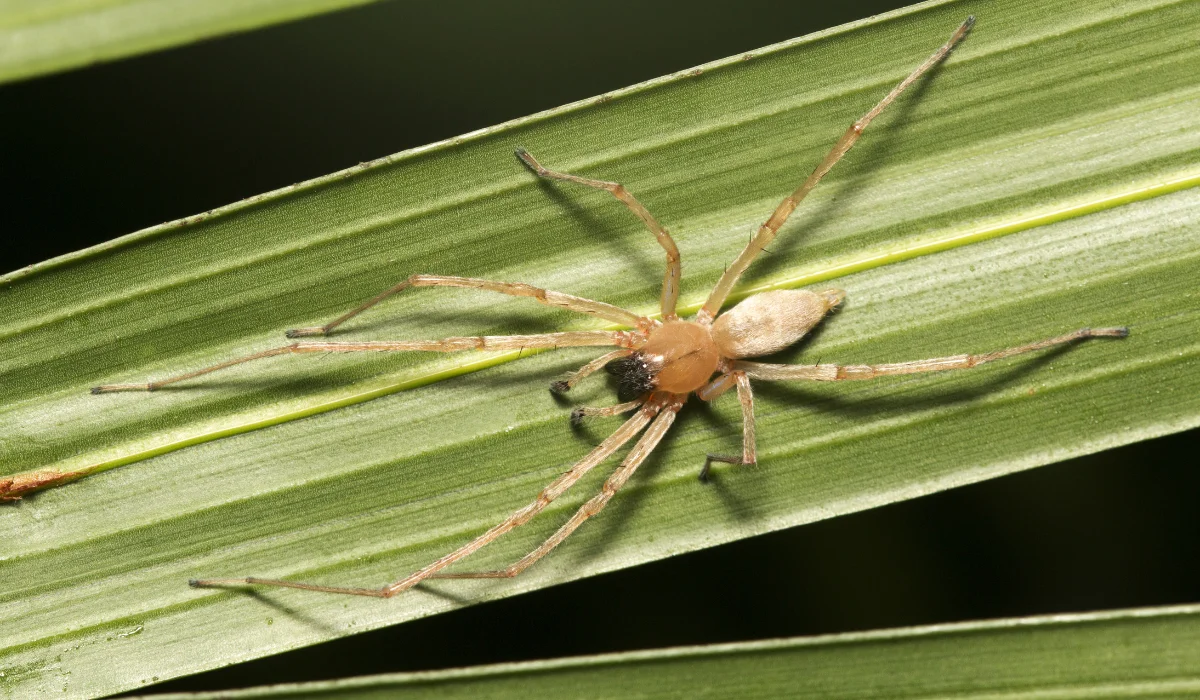Got a cockroach problem? Before you grab that bleach, consider this: Bleach is excellent for zapping germs, but can it kill roaches?
It contains sodium hypochlorite, a harsh chemical that might damage a roach’s armor-like exoskeleton and could even be lethal.
But is it a reliable fix for your roach woes? Stick around to find out if bleach is the quick roach solution you need or just a temporary fix.
Key Takeaways
- Bleach is effective against cockroaches by damaging their exoskeleton and internal systems, but it is not a reliable long-term pest control solution.
- While useful for cleaning and disinfection, bleach can be hazardous if not handled properly, posing risks to humans, pets, and surfaces.
- Alternative cockroach control methods include natural remedies like diatomaceous earth and commercial pesticides with specific active ingredients.
- Using bleach for cockroach control requires direct application and careful dilution, but there should be other choices due to its limitations and potential hazards.
- Professional exterminators offer tailored cockroach control strategies that can be more effective and safer than DIY methods.
THE ROLE OF BLEACH IN PEST CONTROL
Bleach is widely recognized as a formidable cleaning agent, which explains its frequent use in households to eliminate germs.
Its strong disinfectant qualities in pest control can disrupt certain pests, although more efficient choices exist.
What is Bleach?
Bleach, commonly called household bleach, is widely recognized for its potent disinfecting properties.
Composed primarily of a diluted mixture of water and sodium hypochlorite, it is readily available and accessible in stores.
This makes it a popular choice for various household applications. Here’s a look at the diverse uses of bleach:
- Stain Removal: Effectively removes tough stains from fabrics and surfaces.
- Surface Sanitization: Kills germs and disinfects in kitchens, bathrooms, and other areas prone to bacterial growth.
- Laundry Whitening: Keeps white fabrics bright by breaking down residue and dullness.
- General Cleaning: Cleans and deodorizes floors, tiles, and other hard surfaces.
HOW BLEACH AFFECTS COCKROACHES

As you consider using bleach to combat a cockroach problem, it’s essential to understand how it interacts with these household pests.
Here’s how bleach can affect cockroaches at different stages of their lifecycle and in various scenarios:
- Contact with Exoskeleton: Bleach can break down the fatty acids in a cockroach’s exoskeleton on contact, causing desiccation.
- Ingestion: If ingested, bleach can disrupt a roach’s internal system, often leading to death.
- Breathing Environment: Fumes from bleach can be toxic and may suffocate roaches if exposed in a confined space.
- Cockroach Eggs: Bleach can effectively destroy roach eggs, preventing future infestations.
Limitations of Using Bleach
Understanding why bleach might not be the best roach killer is essential. Here’s what you should consider when thinking about using bleach to tackle a roach infestation:
| Limitations | Details |
| Targeted Application | Bleach must be directly applied to roaches or roach-infested areas, challenging reaching hidden nests. |
| Temporary Fix | It may not provide a long-term solution to a roach problem as it doesn’t prevent new roaches from entering the area. |
| Safety Concerns | Bleach is hazardous to humans and pets and can cause burns, respiratory problems, and other health issues. |
| Damage to Surfaces | It can damage household surfaces, fabrics, and finishes if not used carefully. |
| Cockroach Adaptation | Cockroaches can sometimes develop resistance to chemical agents, making bleach an unreliable roach killer over time. |
ALTERNATIVES TO BLEACH FOR COCKROACH CONTROL
While bleach can kill cockroaches, it’s not the most effective long-term control method and safer alternatives exist. Here are some commercial and natural methods to consider.
Natural Remedies
Natural remedies offer a safer way to deter and eliminate cockroaches without the risks associated with toxic fumes.
- Diatomaceous Earth: Sprinkle around areas where roaches frequent, like baseboards and food sources. It acts as a desiccant, drying out the roaches’ exoskeleton.
- Boric Acid and Borax: Mix food debris with borax to create a DIY roach bait. Place near roach pathways for effective control, but keep away from children and pets.
- Baking Soda: A home remedy when mixed with sugar; the reaction in the roach’s stomach can be fatal.
- Essential Oils: Peppermint or tea tree oil can be used as repellents. Apply diluted oils along baseboards to deter them from entering the area.
PROFESSIONAL ROACH CONTROL SOLUTIONS
As homeowners facing a cockroach infestation, you may turn to pest control professionals for effective remedies.
Here’s an overview of what you can expect during a visit from an exterminator:
- Consultation
- Plan of Action
- Treatment Application
- Monitoring and Follow-up
- Preventative Measures
At LaJaunie’s Pest Control, we provide tailored solutions for different types of cockroaches. Here’s a summary of our process:
| Species | Treatment Type | Cost | Follow-Up |
| German Cockroaches | IGR + Intensive Service | $280 | 2-week follow-up, optional 4-week |
| Other Species | Granular Baits | Varies | Quarterly check-ups recommended |
IS IT TIME TO CALL THE EXPERTS?
When you encounter a roach problem, you might reach for bleach as a quick fix. However, bleach is not a foolproof solution for controlling cockroach infestations.
While bleach kills roaches, it’s often not enough to tackle a full-blown infestation. That’s when you might consider bringing in the pest control professionals.
Whether you’re in New Orleans or Baton Rouge, seeking expert help should be easy. For immediate intervention for a severe infestation, let Lajaunie’s cockroach control specialists tailor a solution that’s right for your home.
For more information about the areas we service, visit our location page.
 By: LaJaunie's Pest Control
By: LaJaunie's Pest Control 


